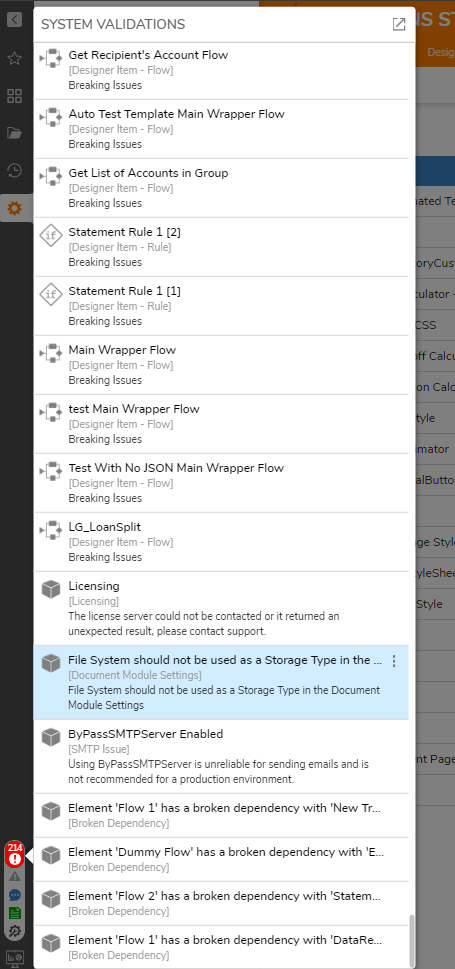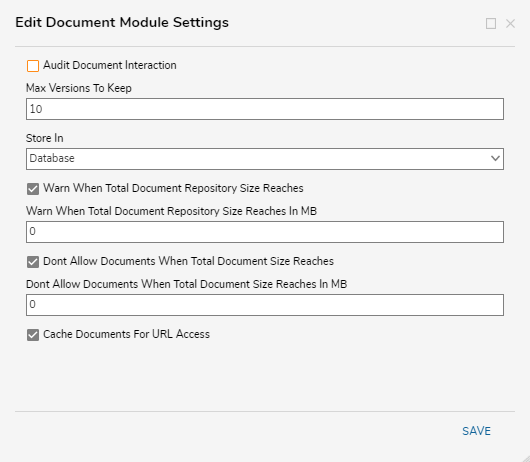Overview
The Document Module System Settings configures how the instance handles document interaction and storage. These settings determine where documents are stored, number of versions of a document stored, and allows warnings to be set for when file space runs low.
v8.13 Change
As of v8.13 changing the Store In setting from Database to File System will cause a system validation message. It is not recommended to change this setting in any version.

Configuration
| Setting Name | Default Value | Function | ||
|---|---|---|---|---|
| Audit Document Interaction | False | Toggles auditing of document interaction. | ||
| Max Versions To Keep | 10 | Number of different versions that will be saved for a particular document. | ||
| Store In | Database | Allows selection of where the instance stores documents. This effects any new documents after this change and does not move already stored documents between locations. The default setting is Database. It is recommended to leave this set to Database. | ||
| Database | -- | Stores documents in the instance's database. For most use cases, this will more than suffice and it is the preferred setting for instances supporting multiple users and/or clustered instances. | ||
| FileSystem | -- | FileSystem is not recommended for use at this time. | ||
| Base Directory | ./Documents | Prompts for the file path to store documents. | ||
| Warn When Total Document Repository Size Reaches | False | Toggles if a warning appears when the repository reaches a certain storage size. | ||
| Warn When Total Document Repository Size Reaches (MB) | 0 | The storage size threshold for when a warning is sent. | ||
| Dont Allow Documents When Total Document Size Reaches | False | Toggles if the storage location still accepts additional documents after a certain storage size is reached. | ||
| Dont Allow Documents When Total Document Size Reaches (MB) | 0 | The storage size threshold that when exceeded prevents documents from storing. | ||
| Cache Documents For URL Access | True | Toggles ability to view documents via URL. | ||
For further information on the Portal, visit the Decisions Forum.